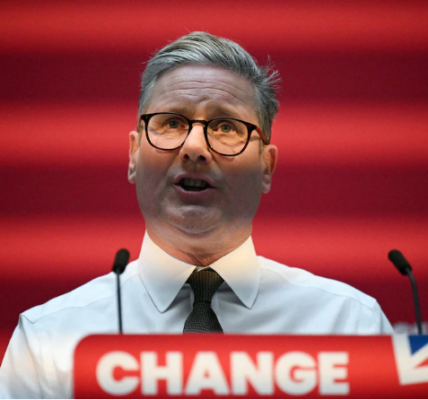“Working-age people are paying ever-higher taxes to support retirees and have less left to save for their own old age,” one economist argued.

The state pension triple lock was introduced in 2010 (Image: Getty)
The pension triple lock is trapping the UK in a “vicious circle” of “paying higher taxes” to benefit retirees, according to an influential thinktank. Under the triple lock guarantee, which was introduced by the Conservative and Liberal Democrats coalition government in 2010, the state pension increases every April in line with whichever is the highest of total earnings growth between May and July of the previous year, Consumer Prince Index (CPI) inflation the previous September, or 2.5%.
However, as the Labour government continues to search for ways to cut back on public spending, the triple lock has come under renewed scrutiny by industry figures and thinktanks including the Institute of Economic Affairs (IEA).
IEA executive director Tom Clougherty warned that that UK workers will “face huge tax rises in the future” if the mechanism remains in place. “The triple lock was meant to be a small political flourish,” he said. “It’s turned out to be three times as expensive as the Office for Budget Responsibility (OBR) expected when it was introduced in 2010.”

One economist suggested the government could make ‘subtle reforms’ to the triple lock (Image: Getty)
It comes as pensioners are on course for a 4.8% rise in the state pension next year after Office for National Statistics (ONS) figures were released last week. The figures showed that CPI inflation for September was 3.8%, with previously released data showing that total wage growth including bonuses for the quarter to July was 4.8% – making this the main figure expected to be used for next year’s pension increase.
It means people eligible for the full new state pension could receive £241.30 a week, or around £12,548 a year. Meanwhile, those on the full basic state pension could see their weekly payments rise to around £184.90.
“The assumption was that earnings growth would normally outpace inflation, so the triple lock would mostly just track wages,” Mr Clougherty said. “Instead, weak wage growth and volatile inflation have meant the pension has risen much faster than expected, and faster than average earnings.
“Over the 2010s and into the 2020s, the state pension has grown sharply as a share of earnings. The result is that working-age people are paying ever-higher taxes to support retirees – and have less left to save for their own old age. It’s a vicious cycle.”
It’s a problem that’s only going to get worse, exacerbated by a rapidly ageing population,” the economist cautioned. “Between now and 2070, the population is going to get much older, and we’re set to spend about 11 percentage points of gross domestic product (GDP) on age-related costs – roughly £200 billion a year in today’s money. That’s like doubling every income tax bill in the country.”
Mr Clougherty said he would be “very surprised” if Brits currently in their twenties and thirties get to experience a triple-lock pension, warning: “It simply isn’t sustainable unless we get a sudden and sustained boom in economic growth.”
Questioned on what Labour could do to change the mechanism, he suggested there was room for “subtle reform” such as rolling smaller pension benefits into the state pension.
While the economist was insistent that change is needed, he was also doubtful that Chancellor Rachel Reeves is capable of carrying it out in a way that doesn’t further alienate voters.
“By the end of this decade, we’ll be spending £23 billion more each year on the state pension than if we’d stuck with inflation-linking,” he said. “That’s about half of the so-called fiscal hole facing Rachel Reeves.
“[But] in most constituencies, a majority of voters are at or approaching retirement age. Unless you can sell a broader vision, people will resist anything that takes away their benefits.”

